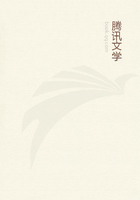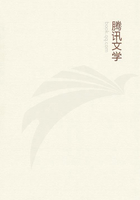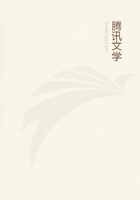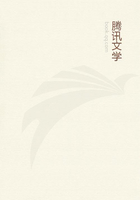At any given time a large number of poets may be found among the undergraduates at Oxford, and the younger dons. It is not easy to say what becomes of all these pious bards, who are a marked and peculiar people while they remain in residence. The undergraduate poet is a not uninteresting study. He wears his hair long, and divides it down the middle. His eye is wild and wandering, and his manner absent, especially when he is called on to translate a piece of an ancient author in lecture. He does not "read" much, in the technical sense of the term, but consumes all the novels that come in his way, and all the minor poetry. His own verses the poet may be heard declaiming aloud, at unholy midnight hours, so that his neighbours have been known to break his windows with bottles, and then to throw in all that remained of the cold meats of a supper party, without interfering with the divine afflatus. When the college poet has composed a sonnet, ode, or what not, he sends it to the Editor of the Nineteenth Century, and it returns to him after many days. At last it appears in print, in College Rhymes, a collection of mild verse, which is (or was) printed at regular or irregular intervals, and was never seen except in the rooms of contributors. The poet also speaks at the Union, where his sentiments are either revolutionary, or so wildly conservative that he looks on Magna Charta as the first step on the path that leads to England's ruin. As a politician, the undergraduate poet knows no mean between Mr. Peter Taylor and King John. He has been known to found a Tory club, and shortly afterwards to swallow the formulae of Mr. Bradlaugh.
The life of the poet is, not unnaturally, one long warfare with his dons. He cannot conform himself to pedantic rules, which demand his return to college before midnight. Though often the possessor of a sweet vein of clerical and Kebleian verse, the poet does not willingly attend chapel; for indeed, as he sits up all night, it is cruel to expect him to arise before noon. About the poet's late habits a story is told, which seems authentic. A remarkable and famous contemporary singer was known to his fellow-undergraduates only by this circumstance, that his melodious voice was heard declaiming anapaests all through the ambrosial night. When the voice of the singer was lulled, three sharp taps were heard in the silence.
This noise was produced by the bard's Scotch friend and critic in knocking the ashes out of his pipe. These feasts of reason are almost incompatible with the early devotion which, strangely enough, Shelley found time and inclination to attend.
Now it is (or was) the belief of undergraduates that you might break the decalogue and the laws of man in every direction with safety and the approval of the dons, if you only went regularly to chapel. As the poet cannot do this (unless he is a "sleepless man"), his existence is a long struggle with the fellows and tutors of his college. The manners of poets vary, of course, with the tastes of succeeding generations. I have heard of two (Thyrsis and Corydon)
"who lived in Oxford as if it were a large country-house."
Of other singers, the latest of the heavenly quire, it is invidiously said that they build shrines to Blue China and other ceramic abominations of the Philistine, and worship the same in their rooms.
Of this sort it is not the moment to speak. Time has not proved them. But the old poets of ten years ago lived a militant life; they rarely took good classes (though they competed industriously for the Newdigate, writing in the metre of Dolores), and it not uncommonly happened that they left Oxford without degrees. They were often very agreeable fellows, as long as one was in no way responsible for them; but it was almost impossible--human nature being what it is--that they should be much appreciated by tutors, proctors, and heads of houses. How could these worthy, learned, and often kind and courteous persons know when they were dealing with a lad of genius, and when they had to do with an affected and pretentious donkey?
These remarks are almost the necessary preface to a consideration of the existence of Shelley and Landor at Oxford--the Oxford of 1793-1810. Whatever the effects may be on Shelleyan commentators, it must be said that, to the donnish eye, Percy Bysshe Shelley was nothing more or less than the ordinary Oxford poet, of the quieter type. In Walter Savage Landor, authority recognised a noisier and rowdier specimen of the same class. People who have to do with hundreds of young men at a time are unavoidably compelled to generalise. No don, that was a don, could have seen Shelley or Landor as they are described to us without hastily classing them in the category of poets who would come to no good and do little credit to the college.
Landor went up to Trinity College in 1793. It was the dreadful year of the Terror, when good Englishmen hated the cruel murderers of kings and queens. Landor was a good Englishman, of course, and he never forgave the French the public assassination of Marie Antoinette. But he must needs be a Jacobin, and wear his own unpowdered hair--the Poet thus declaring himself at once in the regular recognised fashion. "For a portion of the time he certainly read hard, but the results he kept to himself; for here, as at Rugby, he declined everything in the shape of competition." (Now competition is the essence of modern University study.) "Though I wrote better Latin verses than any undergraduate or graduate in the University," says Landor, "I could never be persuaded by my tutor or friends to contend for any prize whatever." The pleasantest and most profitable hours that Landor could remember at Oxford "were passed with Walter Birch in the Magdalen Walk, by the half-hidden Cherwell."















